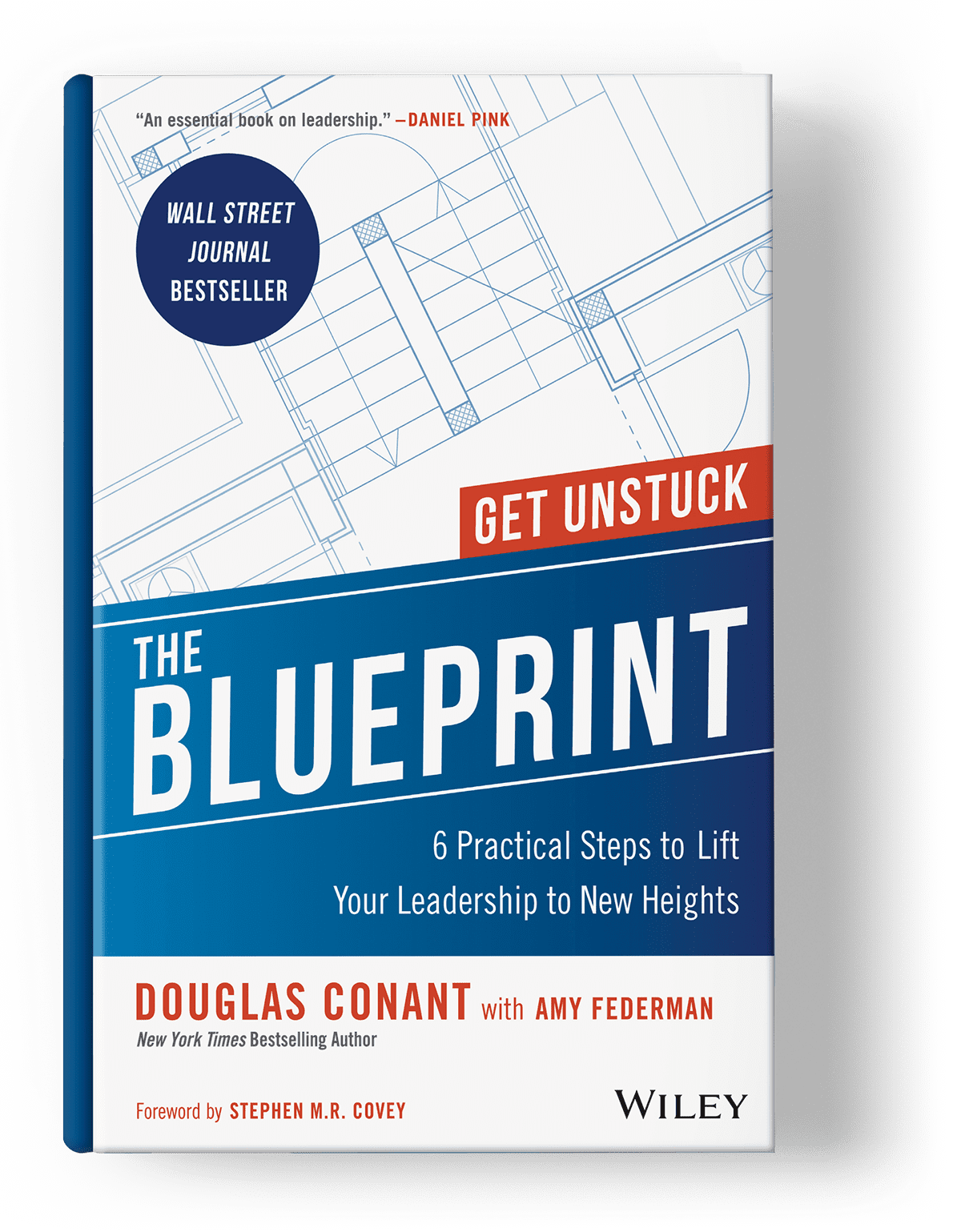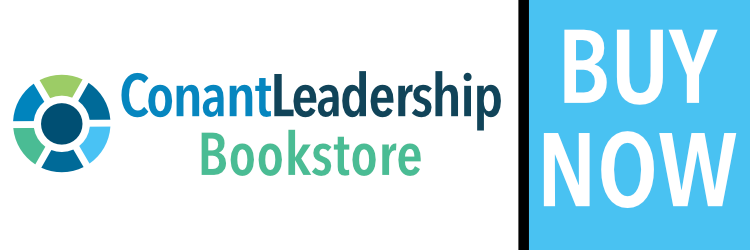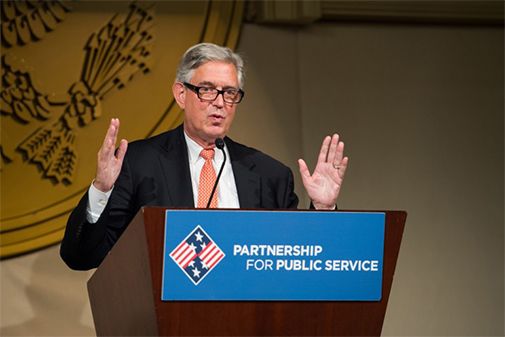March can be a tricky, transitional month. Yes, there’s the promise of spring but also the lingering snap of winter. January’s resolutions may be fading into memory—the excitement for change now starting to fizzle. How to maintain our energy, not just for resolutions, but for any change or growth initiative? Courage is the key. With a courageous mindset, we can choose to see challenges, setbacks, and obstacles as opportunities.
Courage is foundational to transformation in life and leadership because believing that you have the power to make a difference is a leap of faith. And following up belief with action requires fortitude. Doug Conant wrote: “Courage is not just a nice-to-have character trait, but an essential leadership skill.”
History backs Conant up and shows that great leaders have the courage of their convictions, even in the face of naysayers. Take Indra Nooyi, CEO of PepsiCo from 2007-2019, as an example. During her 12-year tenure as CEO, the company’s annual net profit more than doubled, going from 2.7 billion to 6.5 billion, and they outperformed the S&P 500, their peer group index. To achieve these results, Nooyi struck what Bill George, Senior Fellow at Harvard Business School and former CEO of Medtronic, called the magic combination of “vision, authenticity, and courage,” necessary for an organization to thrive. As a new CEO, Nooyi created a strategic plan that made drastic changes to the portfolio and predicted a forthcoming trend in consumer demand for healthier options. It was bold, and many people pushed back. Even as doubters questioned her strategy, Nooyi stood firm, saying, “You don’t back off when you’re on a major transformation,” and she led PepsiCo forward with determination. Now, her success is legendary.
Even if you’re not a CEO, and no matter where you are in your leadership journey, you will need courage to transform your behavior and get results. To become a better leader—to yourself, to your family, your team or your organization—you need to develop your courage muscle.
Ready to get started? Here are four tips for increasing your capacity for courage.
1. Courage Lays the Groundwork
Dr. Maya Angelou once said, “Without courage, we cannot practice any other virtue with consistency. We can’t be kind, true, merciful, generous, or honest.”
Growth begins with understanding that every virtue is enhanced by the presence of courage and diminished by its absence. And transforming your leadership requires that you are courageous enough to practice desired behaviors consistently. Take, for example, the high school principal who is kind and caring with his staff face-to-face but lacks the courage to stand up for them when they’re not in the room. Or consider the manager who is committed to her team’s growth but balks at giving meaningful feedback. Opportunities for growth are missed and the desired outcomes suffer when we don’t have the gumption to follow through.
Just as building physical strength improves our overall vitality, developing the courage of our convictions improves our overall ability to show up as leaders. Courage lays the groundwork for everything you hope to achieve.
2. Know Yourself
To become a leader who makes tough decisions, takes risks, and inspires others, you must develop a strong sense of self.
Doug Conant wrote, “If you’re not firmly rooted in who you are and what you believe, you won’t be able to stand up for yourself and others when it matters most,” and he explains that “the depth of your courage is determined by the strength,” of your self-understanding.
Conant’s point is: How can you have the courage of your convictions if you don’t know what those convictions are? That’s why, in his book, The Blueprint, he provides step-by-step instructions, exercises, and prompts for reflection to help leaders unearth their unique beliefs and values.
Simon Sinek, another leadership thinker, says an important part of self-discovery is to connect with a “why,” which is, “our purpose, cause, or belief—the driving action behind everything we do.” When we are secure in our “why,” we stop second guessing ourselves and can move forward with confidence. Then, we can behave with consistency—even when it’s hard, or unpopular, or misunderstood. Investing in a deeper understanding of what you believe, how you want to behave, and where you want to go will pay dividends in greater courage, confidence, and consistency.
3. Change Your Paradigm
Stephen R. Covey taught: “If you want small changes, work on your behavior; if you want quantum leap changes, work on your paradigm.” To shift your paradigm, shift your mindset.
Take the example of the father who helped his son embrace the pressure of little league baseball. The father noticed that every time there was a full count—three balls and two strikes—the son tensed up and performed poorly at bat. The son explained that the stress of the full count was overwhelming and he was paralyzed by fear of failure. So one day in practice, the father told his son to imagine pitching with a full count, bases loaded, bottom of the 9th. The son resisted and said, “I hate full counts,” to which the father replied, “Let’s pretend you love them. Just as an exercise, think of it as an opportunity to be brave. It could even be exciting. Try saying it: ‘I love full counts!’”
Slowly, reframing the dread to, “I love full counts!,” caught on and became the son’s mantra. Instead of seeing a full count as a chance to fail or embarrass himself, he began to see it as an opportunity to exercise courage, try his best, and face the music—whether he succeeded or failed. The fear didn’t go away, but he learned that he could manage the anxiety, and the paradigm shift helped him trust himself and perform better. By reframing a limiting story, he stopped freezing at the plate, and instead embraced a new mindset that helped him to show courage under pressure.
This example reinforces what Kate Swoboda, courage expert and author of The Courage Habit, says about finding ways to confront anxiety and reframe limiting beliefs. She believes that accepting and facing difficult emotions, rather than trying to swat discomfort away, is the key to becoming more courageous. Confronting reality head-on and finding creative ways to work with, not against, distress is part of paradigm-change.
Experts agree: Stop expecting an absence of fear. Courage is not about being fearless; it’s about being brave even when we’re afraid and showing up anyway—just like the son learned to do with his mantra of “I love full counts.”
What’s a limiting story you’ve been telling yourself? How might you reframe or rewrite it?
4. Practice in Small Moments
When we think of courage, we might think of high-stakes situations or grand affairs—when it feels like the whole world is watching. We might even think of battle, or life-or-death situations. While there are people who must show immense bravery in extreme circumstances, most of us don’t find ourselves navigating the gravity of war or world peace on a daily basis. But that doesn’t mean we don’t need courage—or that we should wait for crunch time to harness it. We need to be able to show up in small moments if we want to show up in big ones. Our everyday leadership lives are full of opportunities to practice courage and examine our behavior and beliefs.
Going back to Maya Angelou, she said: “One isn’t necessarily born with courage, but one is born with potential.” Leaders choose to grow that potential through daily actions and practice. Courage is not just a one-time occurrence or a grand gesture. It is finding small pockets of the day to practice—to align your behavior with your beliefs in a presentation, an email, a conversation. Take small actions with courage as your guide; small but repeated steps lead to transformation.
What’s one small thing you can do tomorrow?
Maybe it’s a hard conversation you’ve been putting off, or signing up for a course to learn a new skill, or proposing a different approach to your team, or even telling someone how much you appreciate them. Whatever it is, think of doing it as your way of practicing the courage habit. Face the negative emotions and push forward anyway. Over time, courage in smaller, low-stakes moments becomes a skill that you can rely on in higher-stakes circumstances.
March Towards Courage
Leadership thinkers and practitioners agree: To transform, keep going. To keep going, have courage. Look to the teachings of Maya Angelou, Doug Conant, Stephen R. Covey, Indra Nooyi, Simon Sinek, Kate Swoboda, and many more as examples.
Instead of waiting for tomorrow to take a risk or change our behavior, let us use our courage to start today by laying the groundwork, getting to know ourselves better, changing our paradigm, and practicing in small moments. Let us embrace the challenges that come our way. Let us grow our belief in ourselves, our people, and our teams. Doing so won’t guarantee that things work out perfectly or that we won’t fail, but it will give us greater opportunities to live authentically, to build trust in ourselves, to persevere in the face of adversity, to transform our behavior, and to deliver better results.
_____
Ready to step into your courage and harness your full leadership potential?
Join us at the next BLUEPRINT Boot Camp by ConantLeadership, a 2-day leadership intensive which offers elite-level, highly interactive training with Doug Conant and a community of your peers. This engaging and immersive leadership development experience is centered around the structured 6-step Blueprint process for reflection and learning that empowers you to lead with integrity, know yourself better, and strengthen your courage muscle. You’ll leave with your own personal leadership model, actionable practices for making a difference, VIP access to Doug Conant, and a new lease on living a joyful and fulfilling leadership life.
About the Author: McKinlee Covey is an educator, coach, and co-author with Stephen M.R. Covey of the WSJ bestseller, Trust & Inspire
(Cover photo by Irina Iriser on Unsplash)







0 Comments